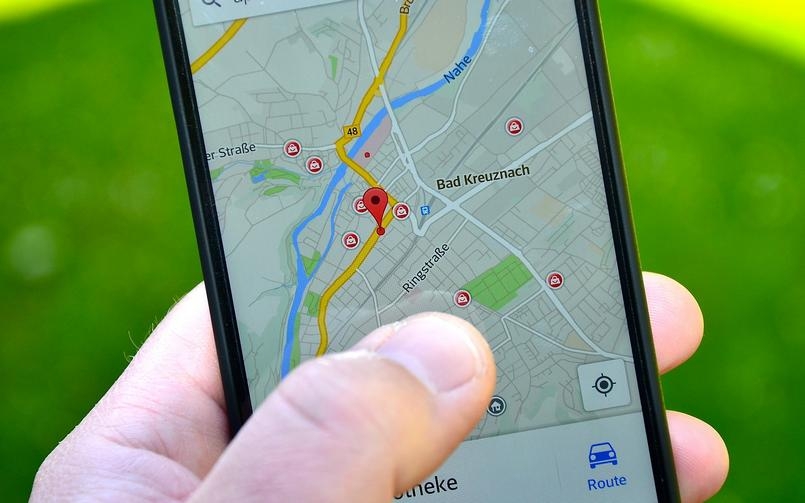How To Stop Facebook From Secretly Tracking Your iPhone?
 |
| How To Stop Facebook From Secretly Tracking iPhone? Photo Knowtechie |
Apple made headlines with the launch of its iOS 14.5 earlier this year, largely due to the App Tracking Transparency feature it carried. Touted to be a messiah of user privacy, the feature enabled iOS users to switch off data collection by third-party apps from their smartphone use.
The feature was frowned at by the makers of several third-party apps, with Facebook being the most vocal among them. The restricted data collection, Facebook argued, will hamper targeted advertising and hence the revenue sources of several small businesses.
Still, iOS users loved this new control over their data. This was clear when it was recorded that only 4 per cent of iPhone users allowed apps like Facebook to monitor user behaviour across their phones post the rollout of the iOS 14.5.
According to Zak Doffman, a cyber security and privacy risk expert, and founder/CEO of Digital Barriers, Facebook will continue to track your location, even if you tell the app to never do so. The way they are doing this is an overt attack on our rights as customers.
Despite requests to not collect location data, Facebook is still doing so using metadata found in iPhone images uploaded to the site. An iPhone tags images with GPS data when they are taken. Facebook gains access to that data once an image is uploaded. The social media giant then strips the data and keeps it, with a blatant disregard for customers’ requests for privacy.
How can you stop Facebook from collecting your location data?
Unfortunately, there’s no real way to stop Facebook from collecting this data. The company is intent on collecting all it can, despite what its users actually want. The only way to prevent your data from being collected is to stop it at the source.
There are a few ways to accomplish this:
-Never allow tracking while using iOS 14.5
-Don’t upload images with GPS data
Disable location sharing with Facebook on your phone.
-Use a browser instead of the mobile app
-It looks like Facebook isn’t going to give up access to our data, even if it has to use loopholes like this. Fortunately, there are apps like iVerify that will give you tools to strip an image’s metadata before it is uploaded.
Still, this is a workaround that we shouldn’t be forced to use. Users should be able to keep all of their information private without having to worry about Facebook finding and utilizing abstract loopholes.
| Stop Facebook tracking Your iPhone Right Now |
**READ MORE: MeWe Social Network: Fact & How different from Facebook?
Do You Really Need Geotagging On For Sharing Pictures?
Photos uploaded to Facebook might have geotags in them, which can enable the social media giant, or practically anyone for that matter, to note your location very easily.
Similarly, suppose you are tagged by one of your Facebook contacts in an image with a location tag. In that case, the service automatically registers it as your location at the particular timestamp, as highlighted in a report by HotHardware.
This data exchange is also enabled by the information exchange between Facebook and its clients. In such scenarios, registrations on a particular business' ledgers can ultimately mean handing your data to Facebook.
Some countermeasures are available for this type of user tracking. Geolocation, for instance, can easily be turned off on both iOS and Android. Users can also prevent anyone from tagging them in images without their approval.
A complete stop to data exchange with Facebook, however, when using the service is practically impossible. If a VPN is not used, the social media platform will at the least collect a device's IP address that can again be used for the user's approximate location.
There are some pretty crazy loopholes the Facebook app uses to figure out where you are. Users unknowingly share their location with all kinds of services by accident every day. For instance, photos with geotags announce to the world where the photo was taken, and a timestamp will say when. Sharing access to photos effectively grants Facebook or any other service full reign to location history any time the camera is on. Fortunately, on both iOS and Android, geolocation is an optional feature that can be turned off easily enough. iOS 14.5 also allows users to select specific photos that apps can see. They don't have to be able to read everything on the camera roll, just the photos you select. This may allow an app to see some location history if there are geotags, but it's not all camera history.
 How to Use New Fascinating Features on iOS 14.5? How to Use New Fascinating Features on iOS 14.5? What can we expect for Apple's iOS 14.5? Check out the killer features added in the new iOS update below! |
How to allow/block iPhone app tracking
| Photo Knowtechie |
Take note that some apps may not function properly without the ability to use trackers.
If you want to see which apps have asked for permission to track, and possibly change their tracking settings, you can just go to that same Tracking page.
If you allow tracking for an app, it will appear in your settings that you can manage at any time. Here’s where to find that:
On your iPhone, head to Settings
Swipe down and tap Privacy
Choose Tracking at the top
The default setting is to allow apps to ask for permission to track you
Toggle it off to block all apps from being able to track you—and even ask to track
Choose “Ask Apps to Stop Tracking” or;
Choose “Allow Apps to Continue Tracking” for any you’ve already approved
If/when you do give permission for an app to track you, you’ll see a list of them under the Privacy > Tracking settings
You can permit or revoke that permission for each individual app by tapping the toggle next to it
You can still use “Allow Apps to Request to Track” to turn off permission for all of your current (and future) apps.
You Don't Have To Load Unsecure Images In Emails
This is an option in the iOS Settings app. In the Mail settings, just turn off the Load Remote Images option. Unfortunately, it's a little more hidden in the Android GMail app. Inside GMail, go to Settings and then select an account. Buried at the bottom are two related settings: Images and Dynamic Email. Select Images to get a pair of radio buttons. Turning off remote images also disabled Dynamic Email, which includes displaying Google AMP content inside emails. Unfortunately, since this is an account-level setting, it has to be set on each account if multiple sync with the device.
 Facebook Account Is Hacked: How To Solve, Best Ways to Protect Facebook Account Is Hacked: How To Solve, Best Ways to Protect Facebook is a big social platform, and there is thousands of accounts, which it will be always a possibility that your account will be ... |
 How To Deactive or Delete Your Facebook Account: Step-By-Step Guide How To Deactive or Delete Your Facebook Account: Step-By-Step Guide Social media is not always going smoothly, and when you have to consider deactivating or deleting your Facebook account, but you dont know how. ... |
 Prediction for Future of Facebook's Diem Cryptocurrency Prediction for Future of Facebook's Diem Cryptocurrency Facebook's Diem cryptocurrency is both a potential point of mass adoption for the still-scaling cryptocurrency ecosystem. It's also unlike any other cryptocurrency out there. |

























